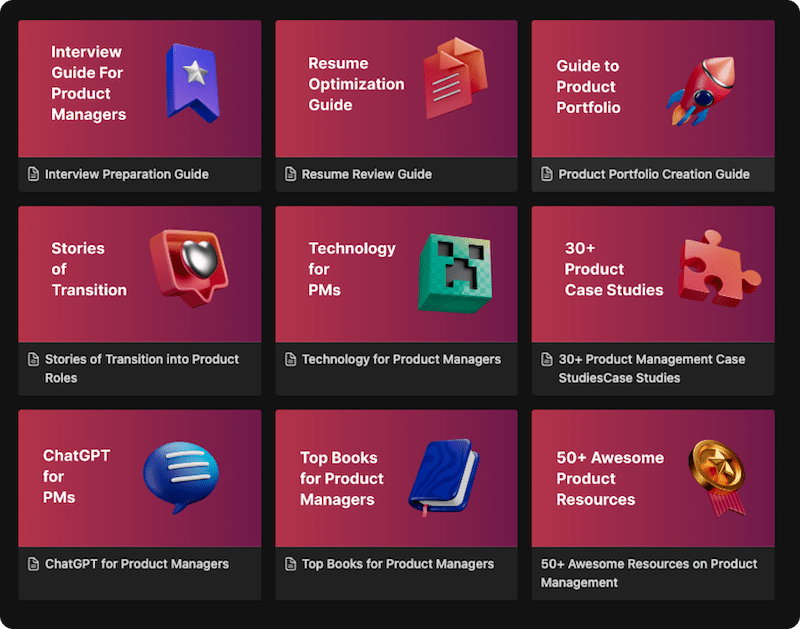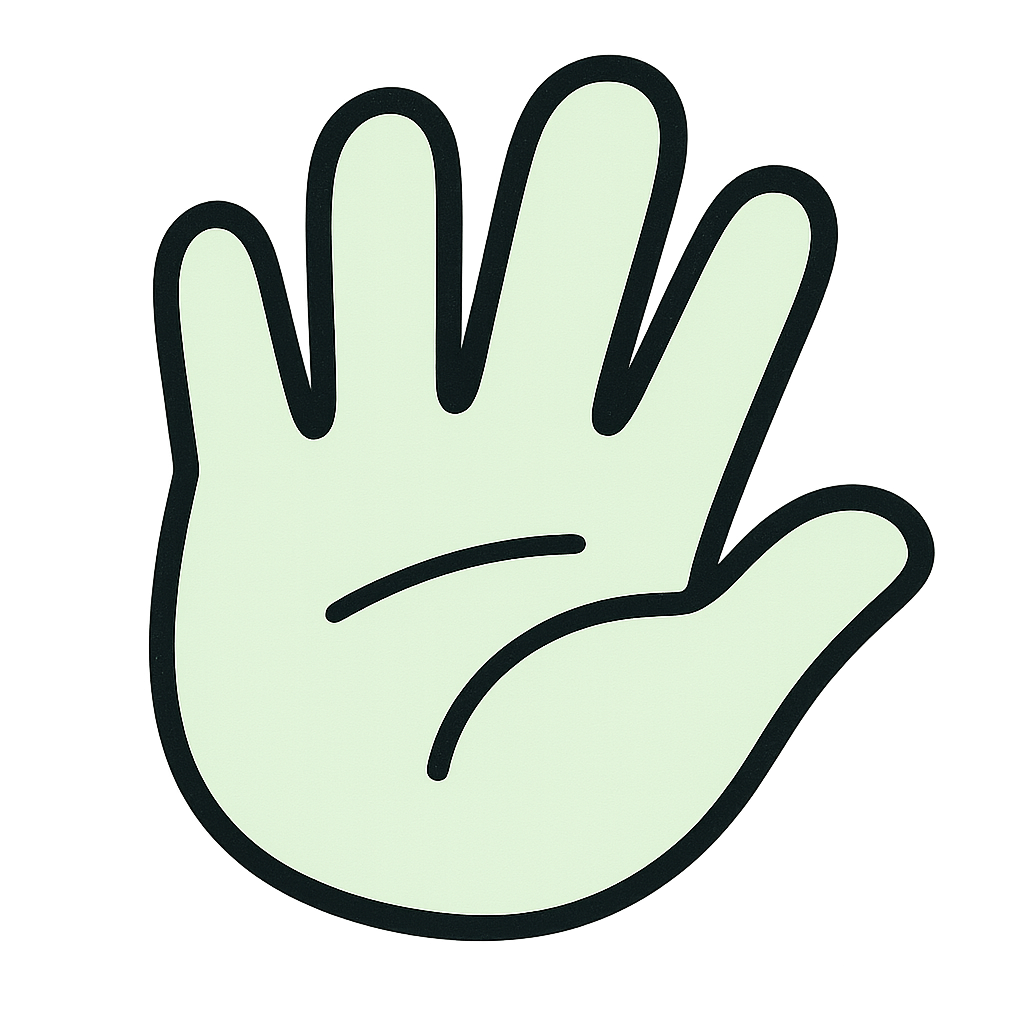You’ve done it. You’ve polished your resume, networked like a pro, and landed an interview for your dream product manager role. You know your experience is a great fit, but the thought of the high-stakes case study or the rapid-fire behavioral questions makes your palms sweat. How can you walk into that room, virtual or physical, and deliver your best performance under pressure? How do you move from knowing the answers in your head to articulating them with confidence and clarity? The answer is practice, but not just any practice. You need a dress rehearsal. You need a mock interview.
Think of a mock interview as a flight simulator for your career. It’s a controlled environment where you can crash and burn without any real-world consequences, so when it’s time for the actual flight, you can soar. This guide will take you from a basic understanding of what mock interviews are to a pro-level ability to leverage them. You will learn how to prepare, how to practice effectively, and most importantly, how to turn that practice into a polished, confident performance that gets you the offer.
From University Career Centers to AI Coaches: A Brief History
The concept of the mock interview is not new. For decades, it has been a cornerstone of university career services and professional coaching, where a counselor would sit down with a student and role-play an interview scenario. This traditional format was invaluable but often limited by the availability and expertise of the interviewer.
The true revolution in mock interviews came with technology. In the 2010s and beyond, the internet supercharged this timeless practice.
- Peer-to-Peer Platforms like Pramp and Interviewing.io emerged, allowing candidates (especially software engineers) to practice with each other for free, giving and receiving feedback in a reciprocal exchange.
- AI-Powered Platforms like FinalRoundAI and SmallTalk2Me introduced artificial intelligence to the mix, offering instant, data-driven feedback on filler words, pacing, and even facial expressions.
- Expert Coaching Platforms like Exponent and InterviewBuddy scaled up the traditional model, connecting candidates with seasoned industry professionals and coaches from top companies for highly specialized, premium-quality practice sessions.
Today, job seekers have an entire arsenal of mock interview tools at their disposal, transforming it from a simple practice session into a sophisticated and accessible training regimen.
The Undeniable Benefits: Why You Can’t Afford to Skip Mock Interviews
If you think you can just “wing” a competitive interview, think again. Top performers practice. Here are the core benefits you gain from mock interviews:
- Dramatically Reduces Anxiety: The fear of the unknown is a major source of stress. By simulating the interview experience, you demystify the process, making the real interview feel familiar and far less intimidating.
- Refines Your Answers: You’ll quickly discover which of your answers are strong and which are weak, confusing, or too long. It’s the place to stumble over your words so you don’t do it in front of the hiring manager.
- Improves Communication Skills: It’s not just what you say, but how you say it. Mock interviews help you perfect your pacing, reduce filler words (“um,” “like,” “you know”), and improve your storytelling ability (especially using frameworks like the STAR method).
- Provides Invaluable Feedback: A good mock interview partner will spot weaknesses you can’t see yourself, whether it’s a nervous habit, a lack of specific examples, or a tendency to ramble.
- Masters Pacing and Timing: Many interviews have strict time limits (e.g., a 30-minute case study). Practice helps you deliver a complete, well-structured answer within the allotted time.
- Builds Unshakeable Confidence: Every successful mock interview is a deposit in your confidence bank. Walking into the real interview knowing you’ve already performed well under pressure is a game-changer.
A Pro’s Guide to Mock Interviews: The 3-Phase Lifecycle
A successful mock interview isn’t just a 30-minute chat. It’s a complete process of preparation, execution, and analysis. Here’s how to approach it like a pro.
Phase 1: Preparation (Before the Mock Interview)
- Define Your Goal: What do you want to improve? Is it your “Tell me about yourself” pitch? Your approach to a product case study? Your system design explanation? Go in with a specific focus area.
- Choose Your Weapon (The Right Type of Mock): Select the format that best suits your goal and budget. (More on this in the next section).
- Find a Partner/Platform: If practicing with a person, find someone who will give you honest, constructive feedback. It could be a trusted peer, a mentor, or a professional coach.
- Prepare as if it’s Real: Don’t wing your practice session. Research the company and role you are simulating. Prepare your key stories using the STAR method (Situation, Task, Action, Result). Have your resume ready and dress the part. The more realistic the preparation, the more valuable the practice.
Interlinking Prompt: Link “STAR method” to a detailed guide on answering behavioral interview questions.
Phase 2: Execution (During the Mock Interview)
- Treat It Like the Real Thing: Join the call on time. Turn your camera on. Put away distractions. The mental focus you bring to the session is critical.
- Record the Session: If possible (and with your partner’s permission), record the interview. Watching yourself back is one of the most powerful—and humbling—ways to spot areas for improvement in your body language and communication style.
- Focus on Your Process: Especially for case studies or technical questions, don’t just rush to the answer. Talk through your thought process. This is what real interviewers want to see.
- Finish Strong: At the end, ask your mock interviewer thoughtful questions, just as you would in a real interview. Practice the entire 360-degree experience.
Phase 3: Post-Interview Analysis (The Real Work Begins)
- Learn to Receive Feedback: This is the most important step. Listen without being defensive. Ask clarifying questions to understand the feedback fully. Take detailed notes. Your goal is not to prove your answer was right, but to understand how it was perceived.
- Give Effective Feedback (for Peer Interviews): When it’s your turn, provide feedback that is specific, actionable, and kind. Instead of “Your answer was confusing,” try “When you explained the trade-offs, I had trouble following your logic. It might help to state the main options upfront before diving into the details.”
- Identify Patterns: Review your notes and the recording. Do you consistently use filler words when nervous? Do your STAR stories lack quantifiable results? Do you forget to define the user in your case studies? Look for recurring patterns.
- Create an Action Plan: For each identified weakness, write down one specific, actionable step you will take to improve it before your next practice session.
Visual Asset Prompt: A circular infographic titled “The Mock Interview Lifecycle” showing the three phases: 1. Prepare (with icons for goals, research), 2. Execute (with icons for a microphone, camera), and 3. Analyze (with icons for feedback, a notepad).
Types of Mock Interviews: Choosing the Right Tool for the Job
The modern job seeker has many options. Here’s a breakdown of the most common types.
| Type of Mock Interview | Best For… | Pros | Cons | Example Platforms |
| Peer-to-Peer | Technical practice (coding, system design), frequent low-cost practice. | Often free, large pool of partners, great for role-specific practice. | Feedback quality can be inconsistent; relies on the skill of your peer. | Pramp, Interviewing.io |
| AI-Powered | Refining communication, reducing filler words, solo practice on demand. | Instant feedback, available 24/7, data-driven analysis. | Lacks human nuance; can’t assess deep strategic thinking in case studies. | FinalRoundAI, SmallTalk2Me |
| Expert/Coach-Led | High-stakes interview prep, senior roles, specialized feedback. | Expert, high-quality feedback; insider knowledge; tailored to your target company. | Can be expensive; availability may be limited. | Exponent, InterviewBuddy |
| With a Friend/Mentor | Foundational practice, getting comfortable, behavioral questions. | Free, comfortable environment, feedback from someone who knows you. | Your friend may be too “nice”; may lack specific industry knowledge. | N/A |
Export to Sheets
The Pro-Tip: Use a mix of all three. Use AI to polish your delivery, use peer interviews for high-volume technical practice, and invest in an expert coach for a final review before the big day.
Visual Asset Prompt: A clear comparison table like the one above, designed for easy scanning and decision-making.
Common Mistakes to Avoid in Mock Interviews
A mock interview is only as good as the effort you put into it. Avoid these common mistakes:
- Not Taking it Seriously: Showing up late, not preparing, or having a “it’s just practice” attitude will yield poor results.
- Choosing the Wrong Partner: Practicing with a friend who only gives you praise is feel-good but useless. Find someone who will challenge you.
- Being Defensive About Feedback: The purpose of the exercise is to find your flaws. Arguing with feedback is a wasted opportunity. Thank your partner and reflect on the perception, even if you disagree.
- Only Practicing Your Strengths: If you are great at behavioral questions but weak on case studies, you must dedicate your practice time to the case studies. Focus on your growth areas.
- Memorizing Answers Word-for-Word: This makes you sound robotic. Instead of memorizing scripts, internalize the key points of your stories (using the STAR framework) so you can deliver them naturally.
Conclusion
In today’s competitive job market, talent and experience are not always enough. The ability to communicate your value effectively under pressure is what separates a good candidate from a hired one. Mock interviews are your training ground. They are the essential bridge between knowing you can do the job and proving it to the world. They empower you to replace anxiety with confidence, rambling with precision, and uncertainty with a clear, compelling narrative.
Don’t wait until the stakes are high to test your performance. Start practicing now. Find a partner, sign up for a platform, or record yourself on your phone. Embrace the feedback, learn from your mistakes, and iterate. By investing in practice, you are not just preparing for an interview; you are investing in your ability to seize the opportunities you have worked so hard to create.
FAQ’s
A mock interview is a practice job interview that simulates the real experience. It’s a chance for a job candidate to rehearse answers to potential questions, practice their communication skills, and receive feedback in a low-stakes environment to improve their performance for an actual interview.
A typical mock interview session should last about 60 minutes. This can be broken down into 30-40 minutes for the interview itself (mimicking the length of a real interview slot) and 20-30 minutes for giving and receiving detailed, constructive feedback.
Yes, they are incredibly helpful and often cited as one of the most effective preparation strategies. They help reduce anxiety, build confidence, identify weaknesses in your answers and communication style, and allow you to refine your performance based on objective feedback.
You have many options:
Peers: Classmates or colleagues in your field.
Mentors: Senior professionals in your network.
Peer-to-Peer platforms: Websites like Pramp connect you with others for free practice.
AI platforms: Tools that use AI to interview you and provide instant feedback.
Professional Coaches: Paid experts who specialize in interview preparation for your target role or company.
After a mock interview, you should immediately review the feedback you received. Watch the recording if you have one. Identify 2-3 key areas for improvement. Create a specific action plan to work on those areas (e.g., “re-structure my ‘weakness’ answer to be more positive,” “practice one case study framework per day”). Then, schedule another mock interview to implement what you’ve learned.
Learn better with active recall quiz
How well do you know What Are Mock Interviews? Let’s find out with this quick quiz! (just 10 questions)


